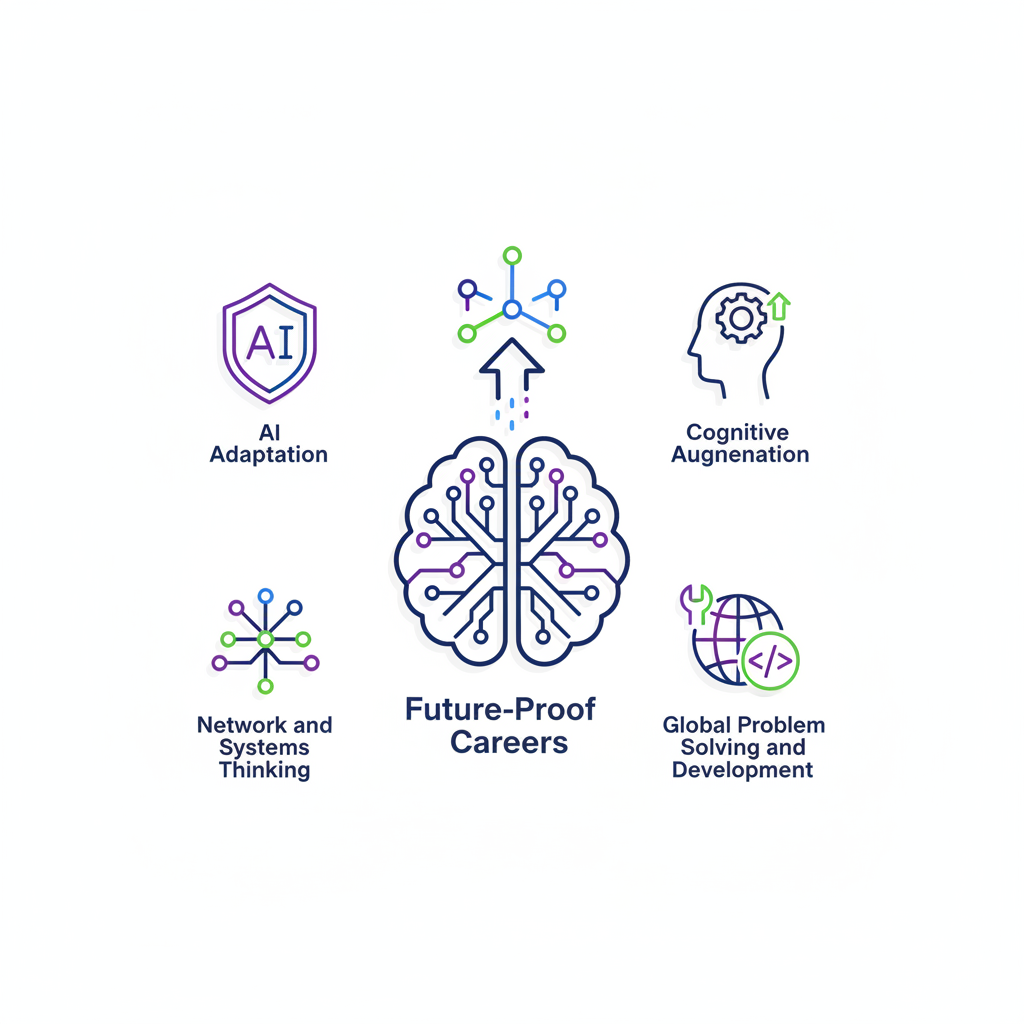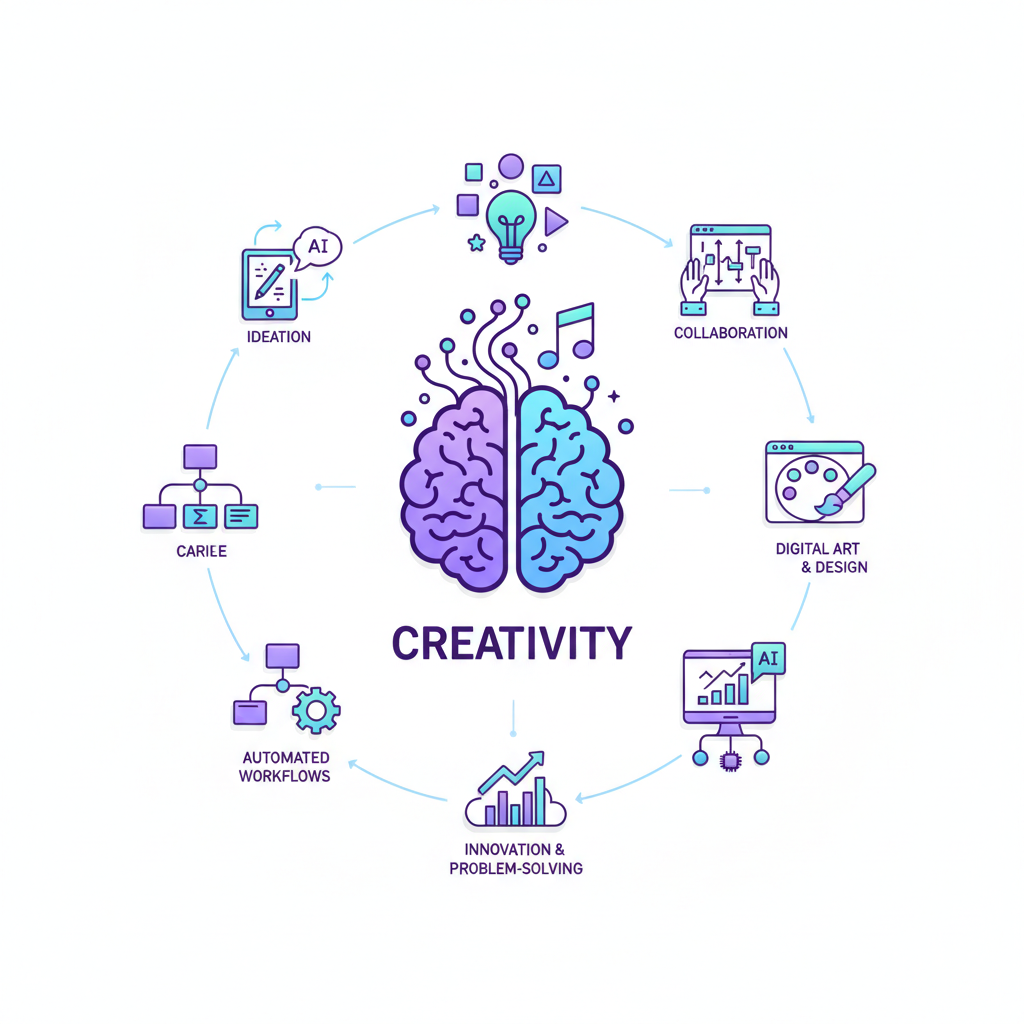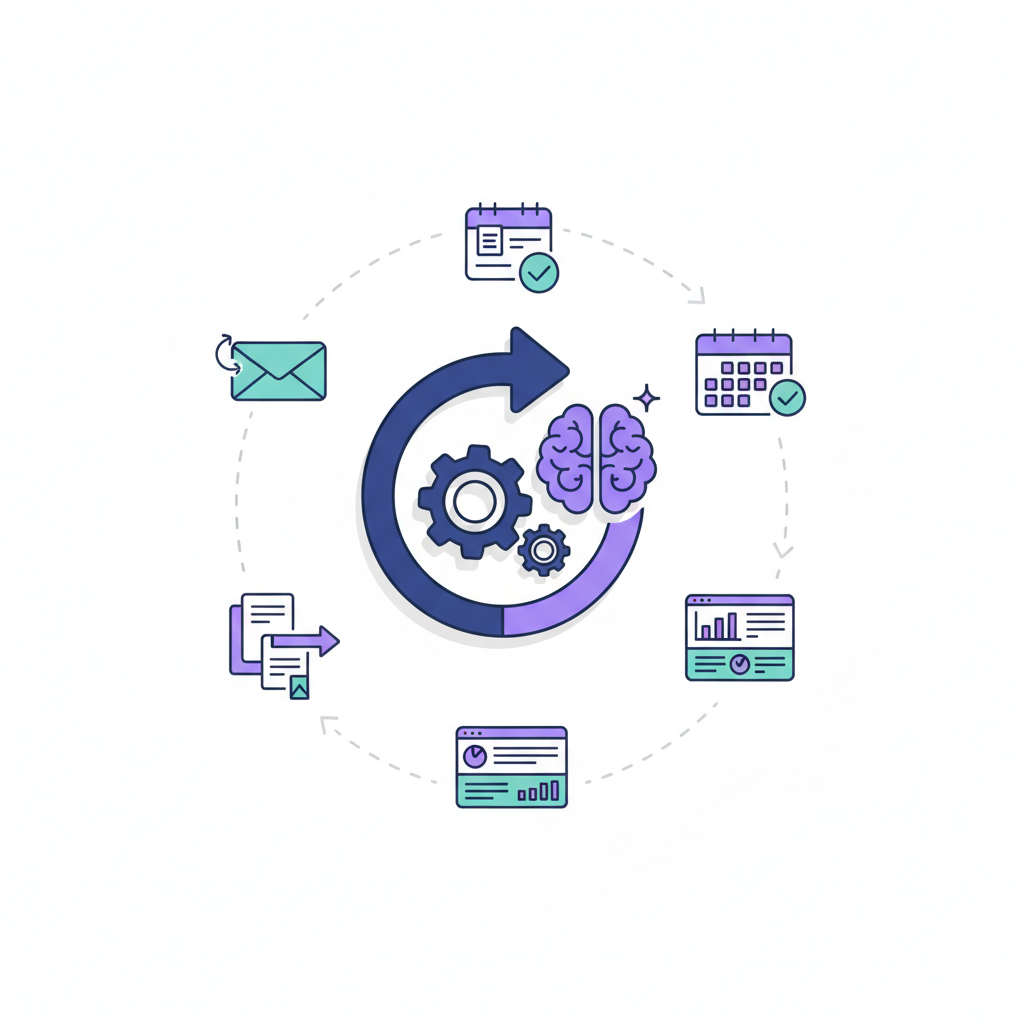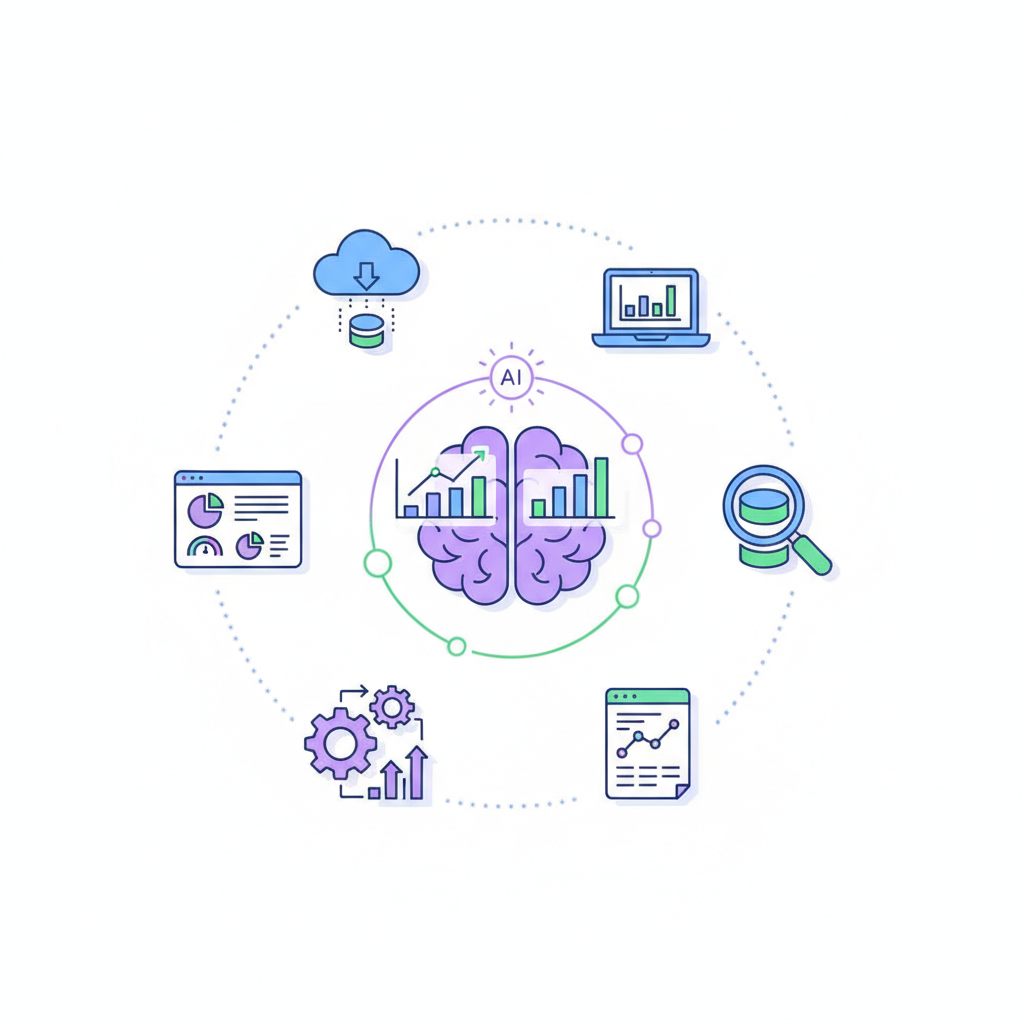Top Future-Proof Careers in the Age of AI Tools
The landscape of work is undergoing a seismic shift, driven by the relentless march of artificial intelligence. What once seemed like science fiction is now an everyday reality, with AI tools permeating every industry, from healthcare to creative arts, finance to manufacturing. This technological revolution, while promising unprecedented efficiencies and innovations, also sparks a fundamental question for professionals worldwide: What does the future hold for my career? Are some jobs destined for automation, while others will thrive and evolve?

The landscape of work is undergoing a seismic shift, driven by the relentless march of artificial intelligence. What once seemed like science fiction is now an everyday reality, with AI tools permeating every industry, from healthcare to creative arts, finance to manufacturing. This technological revolution, while promising unprecedented efficiencies and innovations, also sparks a fundamental question for professionals worldwide: What does the future hold for my career? Are some jobs destined for automation, while others will thrive and evolve?
Far from being a harbinger of widespread job displacement, AI is reshaping roles, augmenting human capabilities, and creating entirely new career paths. The key to navigating this transformation isn't to resist AI, but to understand it, embrace it, and strategically position oneself to leverage its power. This comprehensive guide will explore the careers that are not just resilient to AI but are, in fact, future-proofed by their unique blend of human skills, strategic thinking, and the ability to work synergistically with intelligent machines. We'll delve into the specific roles, the essential skills, and the mindset required to thrive in an AI-powered world, ensuring your professional journey remains robust and rewarding.
Understanding AI's Impact on the Job Market
Artificial intelligence, in its various forms—machine learning, natural language processing, computer vision, and robotics—is fundamentally altering how tasks are performed across industries. Repetitive, data-intensive, and rule-based tasks are increasingly being automated, leading to concerns about job losses. However, this perspective often overlooks the nuanced reality of AI's integration into the workforce. AI is not simply replacing human workers; it is augmenting them, taking over the mundane to free up human capacity for more complex, creative, and strategic endeavors.
The impact of AI can be broadly categorized into three areas: automation of routine tasks, augmentation of human capabilities, and creation of new jobs. Automation is most visible in areas like data entry, basic customer service, and manufacturing assembly lines. Tools like ChatGPT and Claude can generate text, summarize information, and even write code snippets, impacting roles in content creation and software development by handling initial drafts or repetitive coding tasks. Image generation tools such as Midjourney and DALL-E are transforming graphic design workflows, allowing for rapid prototyping and idea generation. The augmentation aspect is where AI truly shines for career longevity, elevating human performance and allowing individuals to focus on critical thinking and interpersonal interactions. The creation of new jobs is perhaps the most exciting outcome, with roles like AI Ethicist and Prompt Engineer now crucial for the responsible deployment of AI.
The Human Edge: Skills AI Cannot Replicate
While AI excels at processing data, recognizing patterns, and executing algorithms, there remains a distinct set of human skills that are incredibly difficult, if not impossible, for current AI to replicate. These are the core competencies that will define future-proof careers:
- Critical Thinking and Complex Problem-Solving: Humans are uniquely capable of evaluating context, discerning ethical implications, and formulating novel approaches to unprecedented challenges.
- Creativity and Innovation: True innovation—the ability to conceive entirely new concepts or artistic expressions that break from established norms—remains a human domain.
- Emotional Intelligence and Empathy: AI cannot genuinely understand or respond to complex human emotions, build trust, or foster deep relationships, making skills like active listening and negotiation essential for leadership and interpersonal roles.
- Ethical Reasoning and Judgment: The need for humans to guide AI's development and application with a strong moral compass is critical, ensuring fairness, accountability, and privacy.
- Adaptability and a Growth Mindset: The pace of technological change demands continuous learning, unlearning, and relearning to embrace new tools and evolve workflows.
Category 1: AI Development and Management Roles
Careers directly involved in the creation, deployment, and ethical governance of AI systems are inherently future-proof. These roles require a blend of technical expertise and strategic oversight.
- AI Engineer/Developer: The architects who design, build, and maintain AI algorithms and infrastructure. They require proficiency in Python and ML frameworks, often using tools like Visual Studio Code and GitHub, augmented by GitHub Copilot.
- Machine Learning Engineer: Specialized professionals focused on designing, building, and deploying ML models for tasks like predictive analytics and computer vision, utilizing cloud platforms like AWS and Google Cloud.
- AI Ethicist/Governance Specialist: Professionals who ensure AI systems are developed and deployed responsibly, addressing algorithmic bias, data privacy, and societal impact. This role requires understanding philosophy, law, and technology.
- Prompt Engineer: An emerging role specializing in crafting effective prompts for generative AI models like ChatGPT and Gemini to achieve specific, high-quality outputs.
Category 2: Creative and Strategic Roles Enhanced by AI
These careers leverage AI to streamline processes and gain insights, allowing professionals to focus on higher-level conceptualization, vision, and execution.
- Content Strategist/Creator: Uses AI (ChatGPT, Claude, Jasper) to generate drafts and research trends, while providing the unique voice, emotional resonance, and narrative depth.
- UX/UI Designer: Uses AI to analyze user data and generate prototypes (Figma plugins), while applying the empathy, aesthetic judgment, and strategic crafting of user journeys.
- Digital Marketer: Leverages AI for predictive analytics, audience segmentation, and ad optimization, while retaining responsibility for strategic planning, brand storytelling, and campaign conceptualization.
- Product Manager: Uses AI to identify unmet customer needs and predict market shifts, while focusing on product vision, stakeholder management, and team leadership.
Category 3: Human-Centric and Interpersonal Roles
These roles rely heavily on empathy, complex human interaction, and personalized care, making them resistant to full automation by AI.
- Healthcare Professionals (Doctors, Nurses, Therapists): AI assists with diagnostics and data analysis, but human compassion, critical judgment, and trust-building are irreplaceable in patient care.
- Educators: AI personalizes learning paths and grades, but the human role in inspiring, mentoring, fostering creativity, and addressing emotional needs is essential.
- Coaches and Mentors: These roles rely on the ability to build rapport, offer tailored encouragement, and provide genuine emotional support, which AI cannot replicate.
- Customer Experience Specialists: AI chatbots handle routine inquiries, but humans are needed for empathy, de-escalation, and creative problem-solving in complex, high-stakes customer issues.
Category 4: Data-Driven and Analytical Roles
These professions are essential for collecting, cleaning, analyzing, interpreting, and securing the vast amounts of data generated by AI systems.
- Data Scientist/Analyst: Uses statistical methods and ML algorithms to uncover patterns. The human role is crucial for formulating hypotheses, designing experiments, and interpreting ambiguous results for stakeholders.
- Business Intelligence Analyst: Translates data into actionable business insights (dashboards, reports). The human provides business context and strategic narrative for decision-makers.
- Cybersecurity Specialist: Uses AI for threat detection and anomaly response, but requires human strategic defense planning, ethical hacking, and adapting to novel attack vectors to protect digital assets.
Adapting and Thriving: Strategies for Career Longevity
To ensure career longevity, professionals must adopt proactive strategies:
- Continuous Learning: Commit to regularly updating knowledge in AI, machine learning, and soft skills through platforms like Coursera and specialized bootcamps.
- Developing Soft Skills: Cultivating strong communication, collaboration, creativity, and emotional intelligence will differentiate human professionals.
- Embracing AI as a Co-Pilot: Learn to use AI tools effectively to enhance productivity and capabilities, transforming AI from a potential competitor into a strategic advantage.
- Building a Strong Network: Professional connections provide mentorship, collaboration opportunities, and insights into emerging trends and career pathways.
Conclusion: Navigating the AI-Powered Future
The age of AI is not an era to be feared, but one to be strategically embraced. The core message for career longevity remains clear: cultivate uniquely human skills, understand how to leverage AI as a powerful tool, and commit to continuous learning and adaptation. The future-proof careers are those that blend technical acumen with empathy, creativity with critical thinking, and data analysis with ethical judgment. By focusing on roles that empower this human-AI collaboration, professionals can not only withstand the tides of automation but thrive within them, shaping a more productive, innovative, and human-centered future of work.
Featured Tools

10Web is an AI-powered WordPress platform that offers automated website building, hosting, and optimization with AI assistance for content and image generation.

A global creative platform connecting businesses with freelance designers for custom graphic design projects.

A1.art is an AI art generator that transforms text descriptions into unique digital artworks across various styles.

An AI platform offering customizable virtual AI girlfriends for companionship and interactive chat experiences.

Acquire.io is a customer engagement platform offering live chat, AI chatbots, co-browsing, and video chat to enhance customer support and sales.
Top AI Categories
Related Articles

How AI Tools Are Redefining Creativity in the Modern Workplace
AI tools are redefining creativity by acting as intelligent co-pilots in the modern workplace. Discover how generative AI (Midjourney, ChatGPT) automates ideation, accelerates content creation, refines code, and shifts the human role from 'maker' to 'strategist' and 'curator'.

Top 10 AI tools for Enterprise Workflow Automation
Enterprises are turning to AI-powered workflow automation to eliminate manual processes, cut costs, and accelerate strategic execution. Unlike traditional automation, AI can handle unstructured data and make intelligent decisions, offering profound benefits across finance, HR, and IT. This guide curates the top 10 AI tools—from RPA leaders like UiPath and Automation Anywhere to iPaaS solutions like Workato and low-code platforms like Microsoft Power Automate—providing a blueprint for building a more agile and resilient organization.

Top 10 AI tools for Business Analytics
In the data-driven world, AI is transforming business analytics from descriptive reporting to predictive strategy. These AI-powered tools leverage machine learning and NLP to automatically discover hidden patterns, forecast future outcomes, and allow non-technical users to query data in plain English. The top 10 platforms, including industry leaders like Microsoft Power BI and Tableau (with Einstein), and AI-native tools like ThoughtSpot and Akkio, democratize access to powerful insights. By adopting these solutions, businesses can turn overwhelming raw data into their most valuable strategic asset, accelerating decision-making and driving competitive advantage.